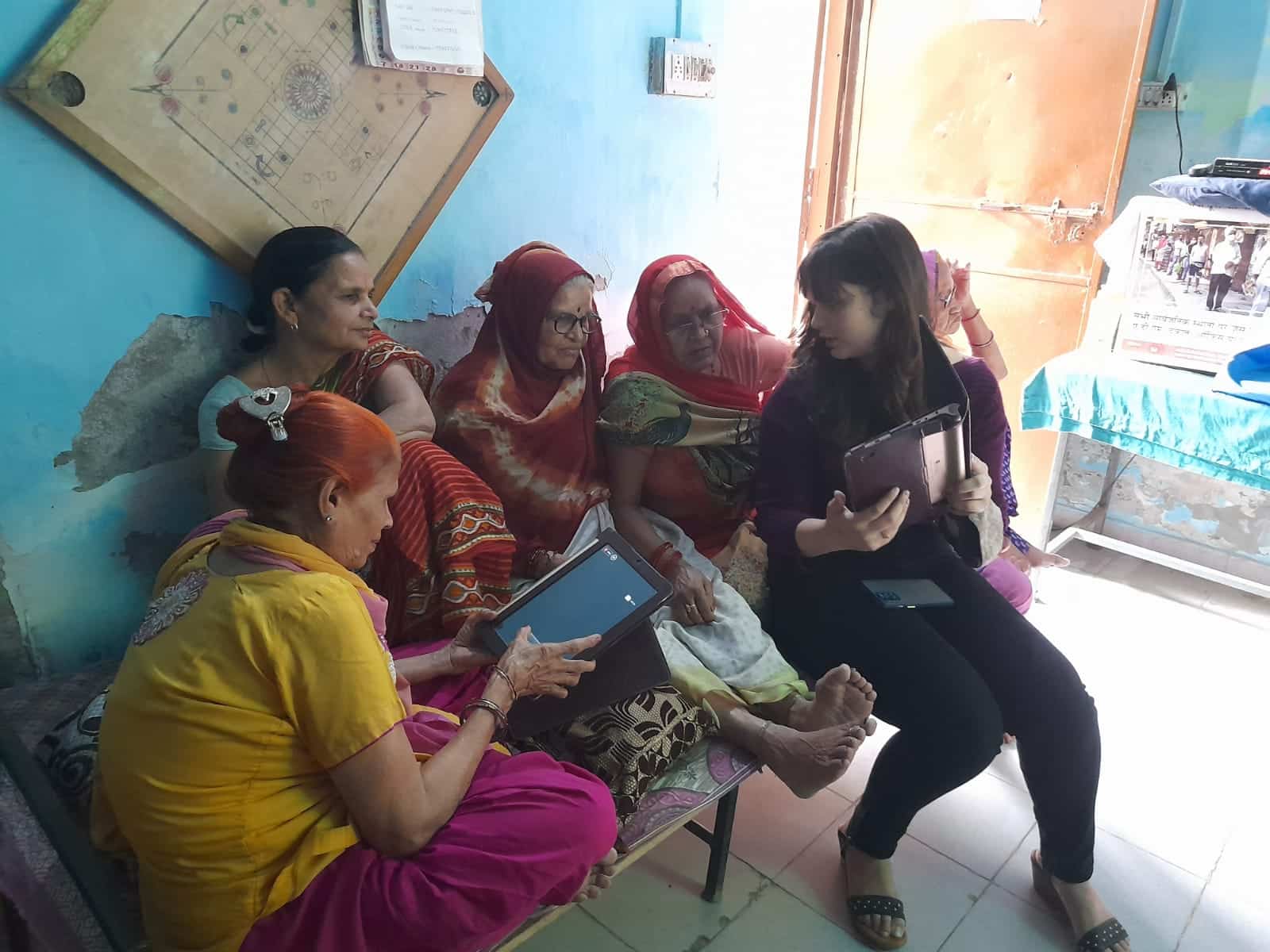Imagine, you’re in the year 1995, back when phones had keypads where you had to press the same key thrice to type a particular letter. You wake up to 122 messages out of which 100 are from the telecom companies and 22 are from your contacts. You can only reply to one message at a time. There was no WhatsApp, Instagram or Facebook. Now, imagine pressing the same set of keys multiple times because you have to reply to all 22 messages from friends and family separately. Feels like a lot of work, doesn’t it?
Now, let’s take this one step further. What if you don’t have the knowledge of the alphabets or numbers that you see on your keypad? Confusing? What if you want to contact your family but you need help from someone else to dial the numbers or type texts for you because it’s all so new and different to you and you have no idea how it works?, Day-to-day life may become a bit complicated, wouldn’t it?
It’s surprising how sometimes when you go to a new place, meet new people or experience something so different and yet so familiar, you may come across an issue that you were aware of but see it in a whole new light. .
I faced one such experience recently, when I was reminded of how there are many people, especially senior citizens, who struggle with the use of technology. I had seen my grandmother face similar issues, but in all honestly, after I lost her around three years ago, it is an issue that I had forgotten about. And this is actually a problem with everybody in my generation.
Generations after generations have come to be comfortable with the use of smartphones and gadgets and yet there are still many people in our country, who are struggling to keep up with the digital world. Even today, there are many senior citizens, especially those belonging to the lower middle class section of society, who have not been touched by digital developments and in many cases, do not have even the basic level of education that is required by a person to stay up-to-date.
All the years when my grandmother was with us, I closely saw her struggling with new age technology, be it cell phones, smartphones, smart TVs, etc.. From finding it difficult to recognise the English numerals on the older phones to struggling with understanding the latest smart devices, I’d seen her find her way through it as we helped her along the way. We saw her understanding, learning and even discovering on her own at a later stage. But over a period of time after she left us, it sort of got wiped away from my mind that many elders still struggle with similar problems in their everyday lives.
However, when I came across the members of the AWARE Senior Citizens’ Day Care as a volunteer during a five-day Digital Literacy workshop conducted by HelpAge India, it all came rushing back to me. The women in the day care were all from a similar section of society. Even though they live in a world that has been created for their comfort away from the problems that they would otherwise had to face in their daily lives, some issues are unavoidable. Most of them are above the age of 60 and find it hard to incorporate technology into their daily lives.
Belonging to a section of the society which is not just financially a little weak but also educationally, most of the women were not well versed with the basic level of English or even the English numerals. Some of them were from different states , who had come to Delhi to stay with their families and thus were not very fluent in any languages apart from their native tongues. Some were good with Hindi but not with English or the English numerals. Thus recognizing numbers and alphabets on their own keypad phones or even the smart devices we had brought for the workshop, was a task for them.
As a HelpAge volunteer, I had to teach these women how to use the smart devices and help them understand the basic functions of smartphones like making, accepting and declining calls.
This workshop, was a one-of-a-kind experience for me because even though, as I mentioned earlier, I had very closely seen my grandmother struggle with technology, understanding the struggle these women were facing was an eye-opener for me.
I realised that the same issue is experienced very differently, depending on the social class of a person. While my grandmother belonged to a well-to-do background, most of these women, as I mentioned, were from a financially weaker section and thus their problems were not only limited to the lack of knowledge of technology but also its impact on their daily lives, especially with issues of lack of means and affordability.
Many of the women, asked me if I could buy them the smartphones that I had been teaching them to use. The smart devices had been provided by the foundation to encourage them to learn. It was at this point I realised that even though most of them were eager to learn and keen on using the devices, they knew they couldn’t afford it and thus would either learn only for the sake of it or not learn at all.
Moreover, financial reasons were not the only ones to stop these women from learning; it was also the educational aspect that hampered their learning. While some of them (only two actually) could understand the English numerals and words like “call” and “keypad”, others could only understand the words or the buttons with the help of symbolic representations, like the colours of the buttons or the shapes of the numbers or similar representation of certain buttons. Most of them found it difficult to differentiate between numbers like 6 and 9 or 5 and 2 and thus had to be taught through the understanding of their placement on the keypad.
One of the women, Bina Ji, told me how she could not understand the English numerals because she had only learnt the Hindi numerals, thus it was very confusing for her. She also mentioned how she saw no point of learning because they will eventually forget everything if they don’t habitually use the devices. “Aap toh roz nahi na aaoge, phir hum isse nahi chalaenge toh bhul na jayenge (You won’t come here every day, then won’t we forget what we learnt since we don’t use smartphones?)”, she had asked. However, she did not let the learning go to waste as she began to match the numbers from the touchpad of the smartphone to the keypad of her phone and would try to dial the numbers on her own. By the end of the workshop she had complete knowledge of the numbers and their placements and had stopped getting confused by the shape of the numbers.
All I knew before being a part of this workshop was that people struggle with technology and devices because they’re not familiar with them. But I now understand that there’s so much more as to why they are not familiar with certain things, and there’s usually no one particular answer to this question but multiple and varied answers, which may or may not be interrelated.
What I also realised is that it’s not always an economic or educational reason behind a person’s inability to learn a certain skill but also their own personal reasons. In this case, some of the women had nobody they wished to contact and thus they were not eager to learn a skill like making calls, as it would make them feel lonelier, while others were handicapped because of medical reasons. And thus it’s easier to judge things on the basis of what one sees but it’s tougher to go deeper and understand the roots of why something or somebody is the way it seems to us. This experience has helped me be more aware of the different problems senior citizens face with regards to the digital divide and also made me more equipped to help them overcome them.
This article has been written by:
Srishti Mukjerjee
Student of Masters in Journalism and Mass Communication
St. Pauls College, Bengaluru






